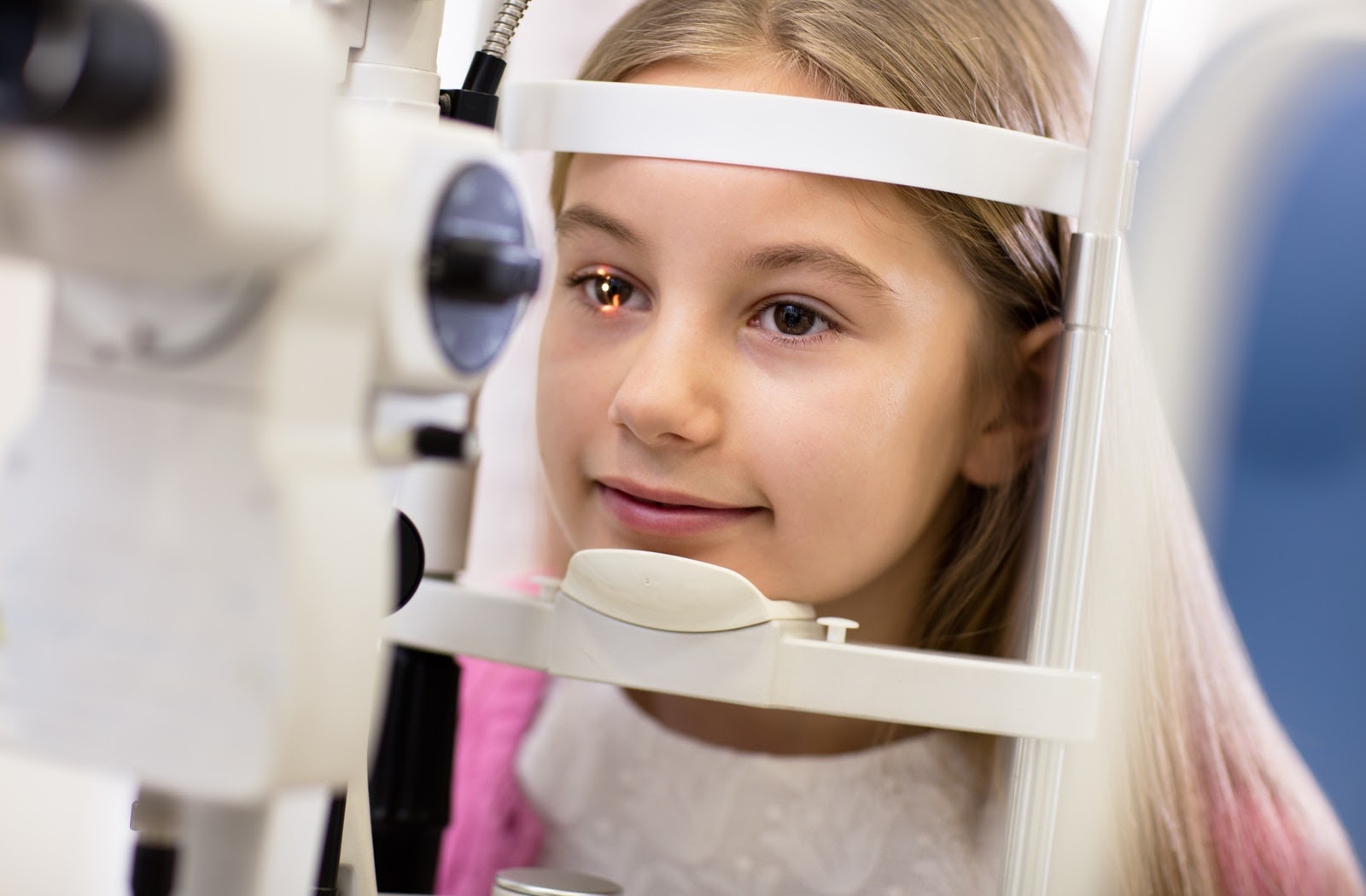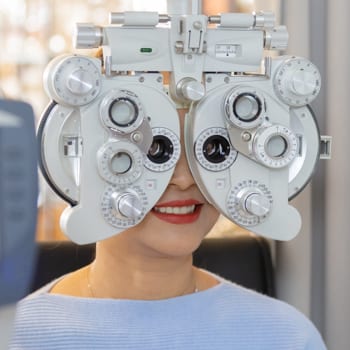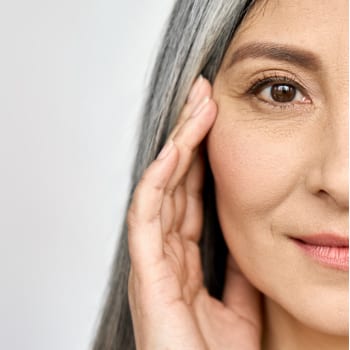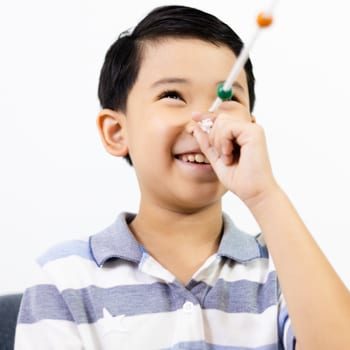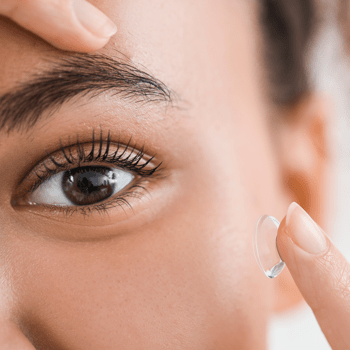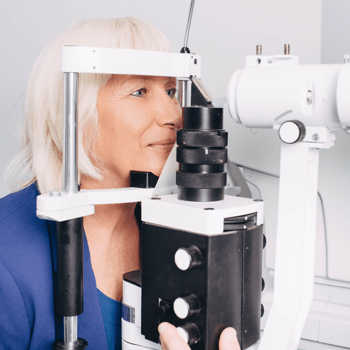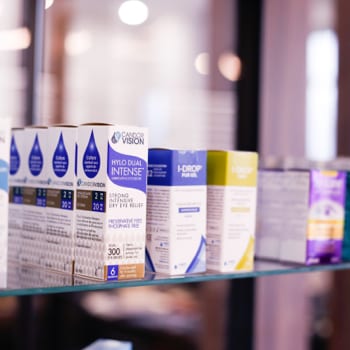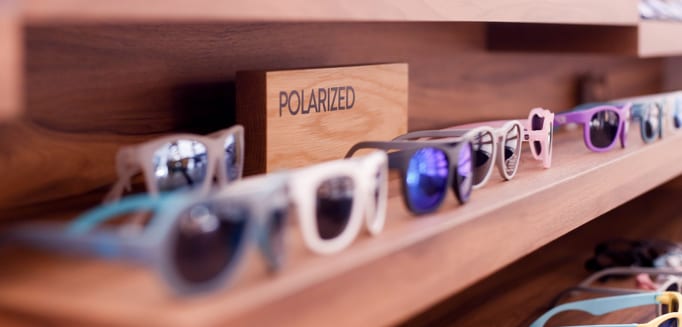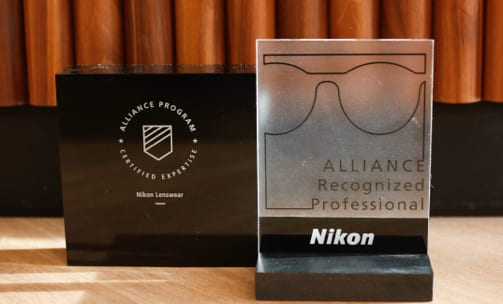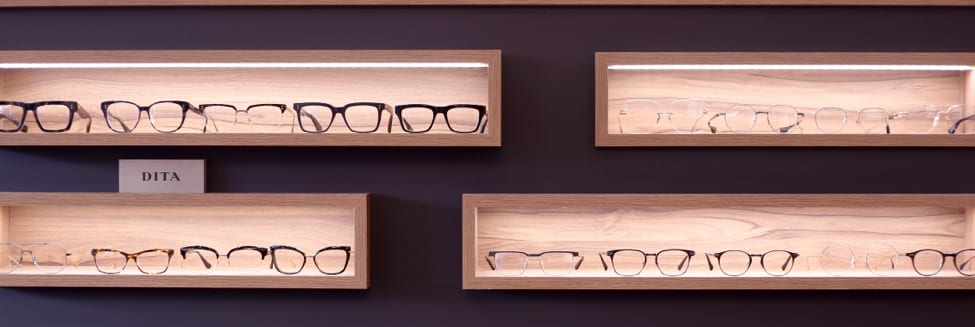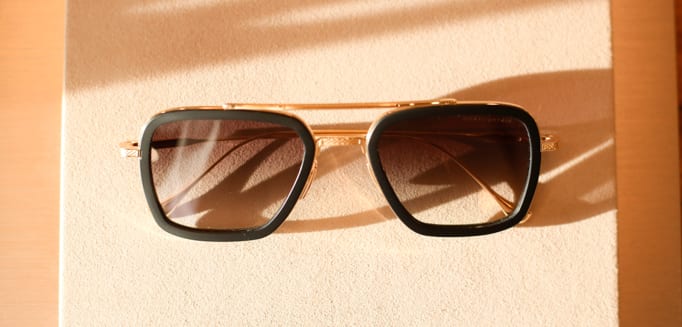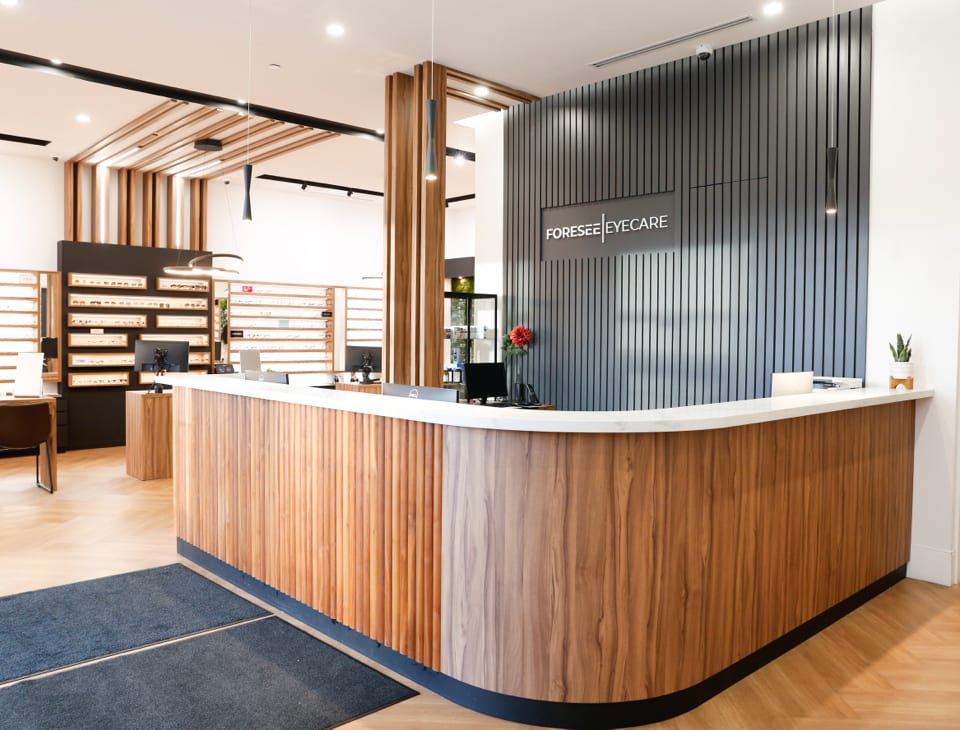Your child’s sight is more than simply a sense; it’s also a skill that connects their entire body that they learn to use as they grow.
In most cases, children achieve the full breadth of their visual skills by their first birthday. However, it’s important for our doctors to monitor their eye development to help prevent potential issues from affecting their sight as well as the information processed through their sight.
Regular eye exams are the key to supporting your child’s vision and eye health, and it’s always a great idea to start their eye care journey as early as possible. If you’re a new parent, though, you might have some questions about the process and what you can do to support a comprehensive, comfortable experience.
We’re here to help parents like you care for your child’s eyes, so let’s look at the top 5 tips you should know when you bring your child in for their first eye exam!
If you have any further questions about our approach or your child’s eye health, don’t hesitate to give the team at Foresee Eyecare a call today.
When Should Your Child Have Their First Eye Exam?
First, when should you bring your child in for their first eye exam?
From the moment your child’s born, their vision and eyes are slowly developing to help them see more of the world around them. At first, they only may see a few feet in front of them, but their vision develops over time to help them see colours, interact with objects, recognize people, and navigate their environment.
To help ensure their vision develops properly, we recommend bringing them in for their first eye exam ideally while they’re between 6 to 9 months of age, but no later than 12 months of age. At this point, your child has developed several visual skills, so our team needs to catch potential issues before they have an opportunity to affect your child’s vision, especially congenital or organic eye issues.
Now that we know when you should bring your child in for an eye exam, let’s now look at some helpful tips you should know to help your child have the most comprehensive and comfortable eye care experience possible.
#1. Know Your Child’s Family Health History
Your child’s eyes share a unique yet intricate relationship, and certain health and eye conditions could increase the risk of experiencing problems as they grow up. If your child’s family has a history of these conditions, we can orient our exam to detect them as early as possible.
Please let our team know when you come in for your child’s eye exam if they have a family history of:
- Myopia (nearsightedness)
- Congenital glaucoma
- Diabetes
- Colour blindness
- Keratoconus
- Congenital cataracts
#2. Look for the Signs
It’s difficult to know if your child is struggling with their eyesight, especially at a young age. Thankfully, certain signs you could look for may help you determine if your child’s developing an eye or vision condition.
Some of these signs may look like:
- Difficulty tracking objects with their eyes
- Eye redness
- Excessive teariness
- Crusted eyelids
- White pupil(s)
- Light sensitivity
Some children’s eyes may also appear as if they’re turned inward. This might be a normal part of their eye development, but it could be a sign of strabismus, a common eye condition that could cause permanent vision problems if it isn’t addressed.
If you don’t see anything wrong with your child’s eyes, you might be able to notice potential issues in the way they behave. Some behaviours indicating a vision problem could be difficulty concentrating, anger, or discomfort, so please speak to our team if you notice your child acting this way.
#3. Prepare a List of Questions
Before bringing your child to their exam, we always recommend preparing a list of questions and concerns you can ask our doctors. While we’re proud to support your child’s vision, we also want to ensure parents like you understand how your child’s eyes work and what you can do to protect them.
Some questions you might want to ask our team can include:
- How do I know if my child has a vision problem?
- What can I do to preserve their eyesight?
- How often does my child need an eye exam?
- How will vision problems affect my child’s quality of life?
If we discover a condition that could affect your child’s sight, some questions you can ask may include:
- Can you explain the condition to me?
- Will this issue affect both eyes?
- What caused this condition?
- What should I do to support my child’s sight in the future?
- Is this an eye issue or a symptom of an overall health issue?
- Will this condition progress as my child grows up?
- What are some symptoms my child might experience?
Our team is here to help you understand everything you need to know about your child’s eyes, so please feel free to ask any questions and don’t hesitate to have us elaborate on details you think are important.
The more you understand your child’s eye care needs, the better you can support their vision throughout their life.
#4. Understand the Difference Between Eye Health & Sight
Your child’s eyes are a complex network of systems all working together to provide their sight, but there is a distinction between eye health and the quality of your child’s sight.
Eye health refers to the systems that help your child’s eyes function, like their retina, optic nerve, eye muscles, and retinal blood vessels. These systems are linked to each other and your child’s overall health, but they could risk developing problems depending on their family health history or lifestyle. Some issues can include:
- Amblyopia (lazy eye)
- Strabismus (crossed eyes)
- Congenital cataracts
- Styes
- Conjunctivitis (pink eye)
In some cases, we may recommend certain strategies like vision therapy, medications, eye drops, or even surgery to help manage them.
Your child’s sight often refers to their lens prescription. As your child grows up, their eyes might develop in a way that could affect how light refracts into their eyes, causing common refractive errors like:
- Myopia (nearsightedness)
- Hyperopia (farsightedness)
- Astigmatism
A common way to correct these errors is to prescribe glasses or contact lenses, but we may recommend other strategies if their symptoms are related to an eye health problem.
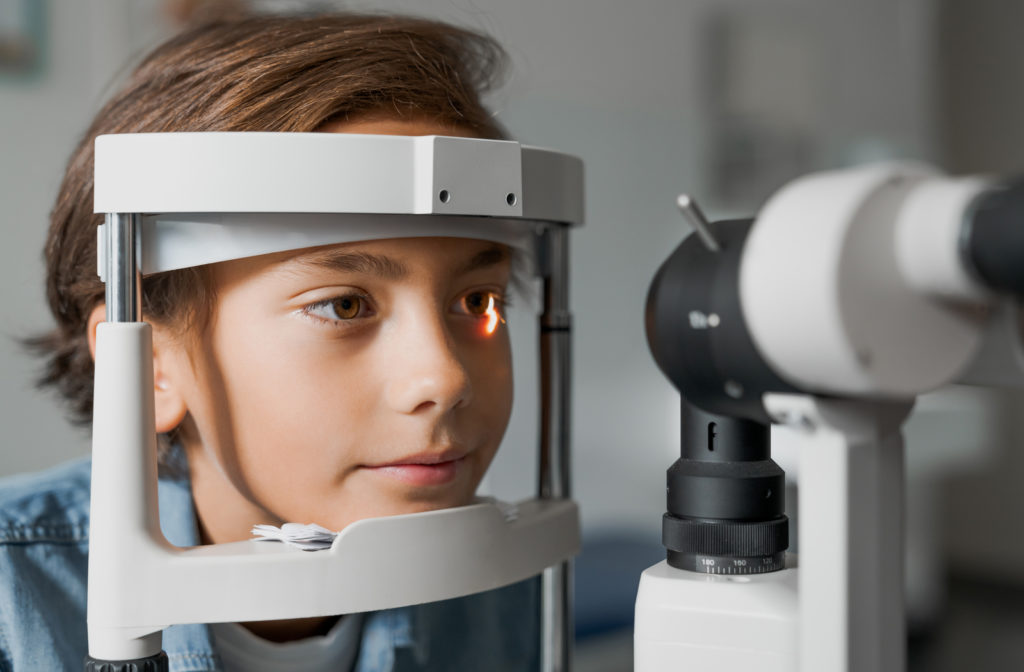
#5. Don’t Worry. You’re Covered.
Finally, the last thing you should know is that you can get your child’s first eye exam covered under the Ontario Health Insurance Plan (OHIP).
In fact, OHIP will cover 1 comprehensive eye exam plus any necessary follow-ups for all children up to the age of 20. Other programs are also available to help provide your child with eyeglasses when they enter school/JK, like the Eye See… Eye Learn program.
Even if you don’t have family eye insurance, there are always other ways you help support your child’s eye development. Please speak to our team if you have any questions about these programs and how they might help you.
Start Your Child on The Path to Healthy, Clear Vision Today
Crisp, clear, healthy vision is an important part of growing up, and Foresee Eyecare is proud to be the team your child trusts to support their sight.
If you’re ready to start your child’s eye care journey, please don’t hesitate to contact the team at Foresee Eyecare and book your appointment today!

